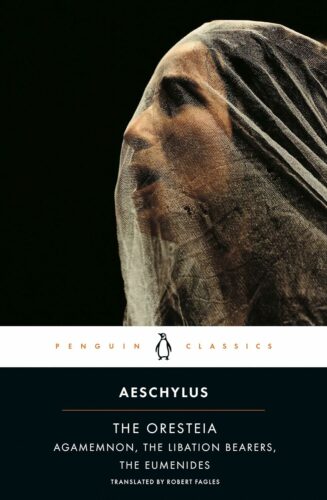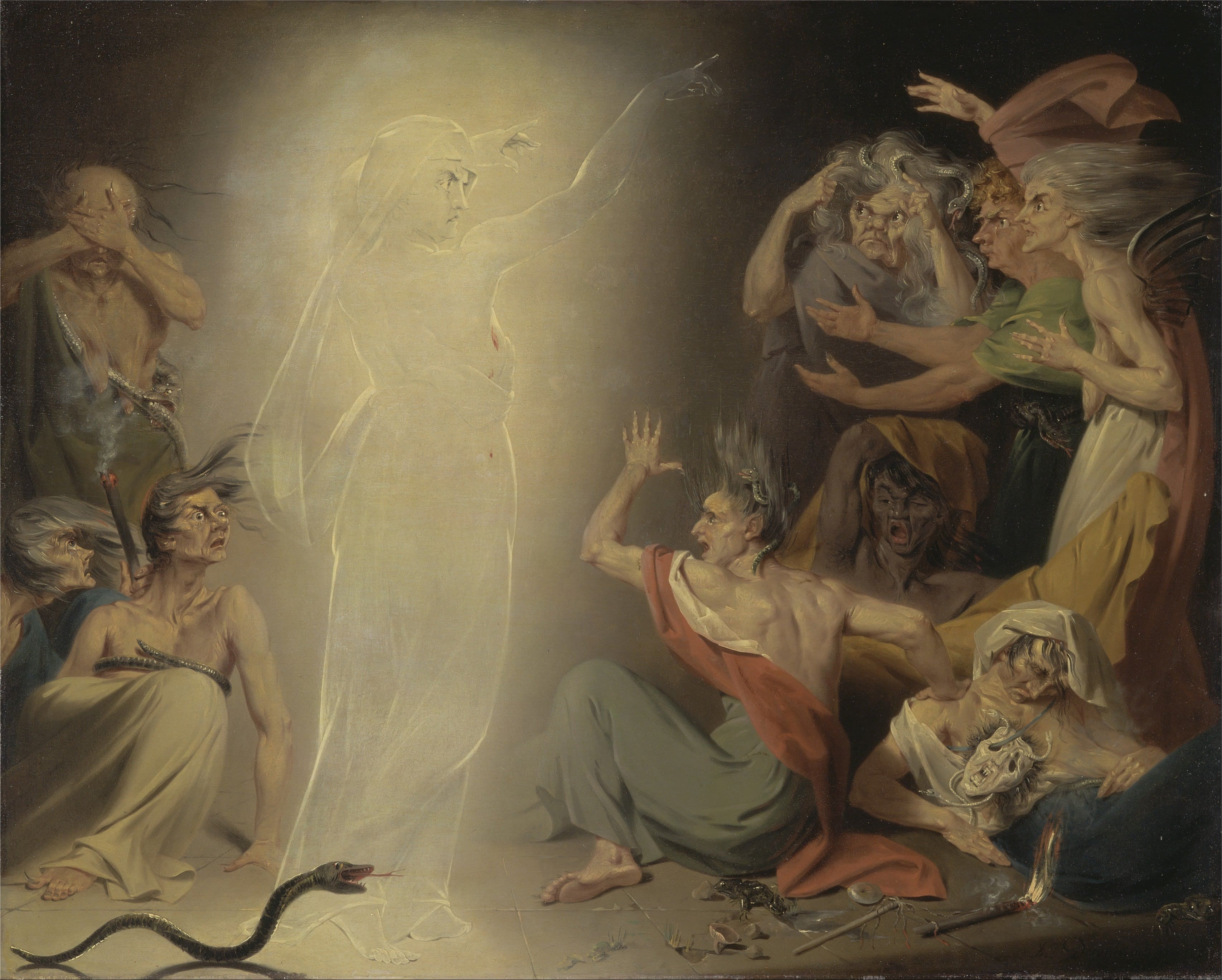A Family Affair
Author: Aeschylus
In Aeschylus’ famous triad, The Oresteia, the author explores themes of violence and honor killings, leading readers from primeval bloodlust into law and order and the establishment of civilization. It starts, as many know, with the House of Atreus and its escalating curse. Agamemnon triggers the curse again when he sacrifices his daughter, Iphigenia, for political gain and a successful war against Troy. Agamemnon’s wife, Clytemnestra, begins an assassination plan that ends when Agamemnon comes home, triumphant, and oblivious, new mistress in tow. The chain reaction is set, and Orestes determines to murder his mother and avenge his father, only to in turn be chased by the furies, who want to perpetuate the blood killings. The gods must intervene, and civilization and law is born out of blood and family disintegration.
I can imagine that seeing The Oresteia on stage is an entirely different experience than reading the three plays. Most of the emotion and agony is missed on the page, given over instead to the actors’ capabilities to convey a cycle of grief and retribution. Much of the violence too is only briefly displayed, a stage direction that does not fully capture the blood and guts of a brutal chain reaction. As such, reading each play is an abbreviated experience: a cliff-notes version. We get a bit of the sense of the drama, but this story was not meant to be read. It was meant to be seen and felt, and that is evident throughout the three plays that comprise The Oresteia (Agamemnon, The Libation Bearers, and The Eumenides respectively.)
The opening introduction helps us understand the importance of the plays on Greek culture and the theme: moving from a frontier justice society to one based on rules. However, it’s overly dry, scholarly approach (and numerous spoilers) sets us up to read with a school master’s eye instead of the eye of an ancient audience ready for some explosive, bloody entertainment. Perhaps part of this is the very oldness of the text. We’re used to settling into a certain mode for classics, instead of allowing ourselves to feel the story. Perhaps it was just the particular risk of reading a play instead of seeing it performed, as it was intended. Perhaps it was because I already knew the story and couldn’t be shocked by the escalating violence. It’s hard to say.
I enjoyed reading The Oresteia, but honestly this was mostly because I enjoyed marking off another classic on my to-read list. It wasn’t nearly as exciting as I had anticipated, and all the events that occurred were no more drawn out or described than the summaries I have heard over the years. I think everyone should read these plays, but to truly experience it, to enter the drama and the pathos, I think this offering must be seen. The missing piece here, the dynamic that breathes life into the storytelling, is the actors and the set, and you just can’t mimic that through a few pages of dialogue and directions.
– Frances Carden
Follow my reviews on Twitter at: https://twitter.com/xombie_mistress
Follow my reviews on Facebook at: https://www.facebook.com/FrancesReviews
- Book Vs Movie: The Shining - April 6, 2020
- Thankful For Great Cozy Mysteries - December 13, 2019
- Cozy Mysteries for a Perfect Fall - October 20, 2019




